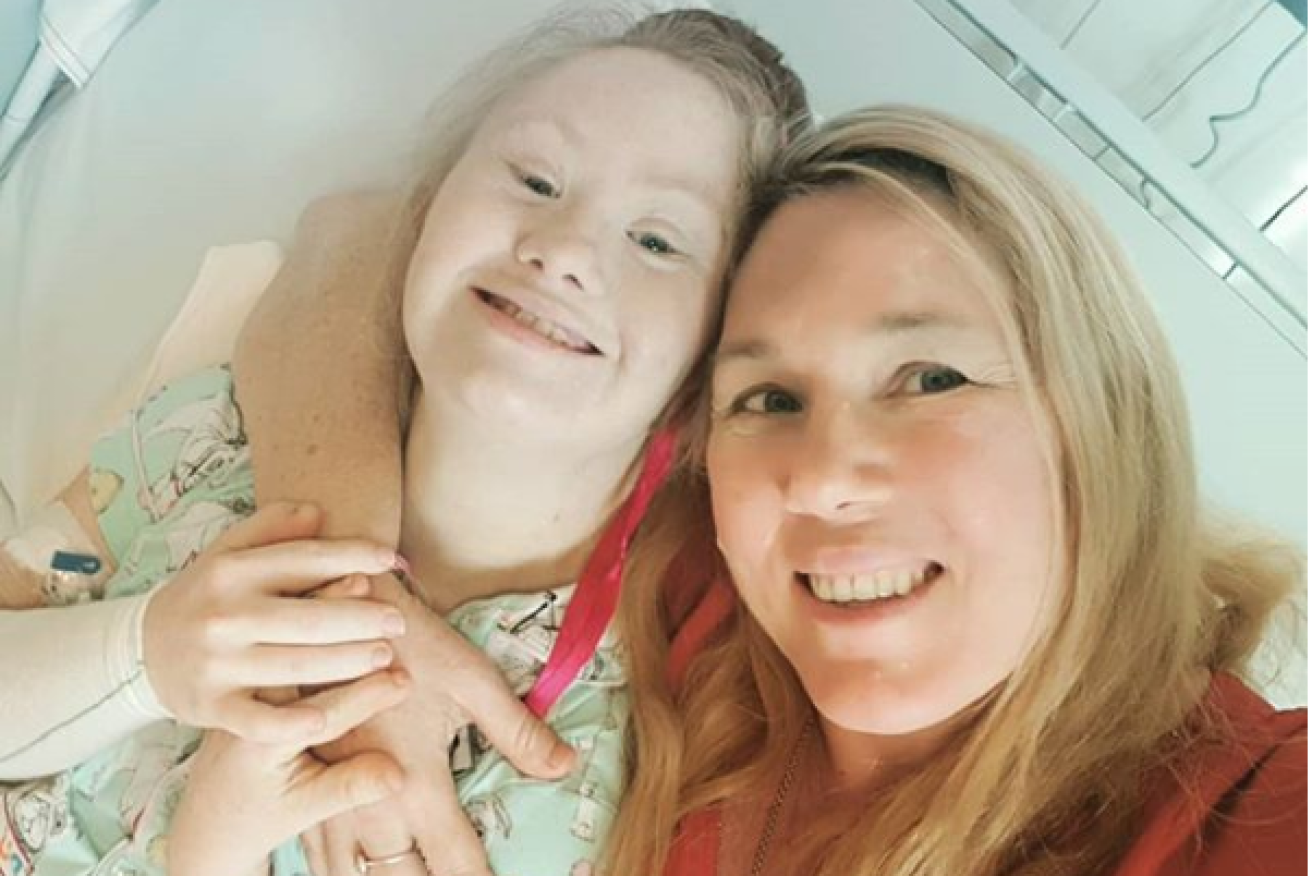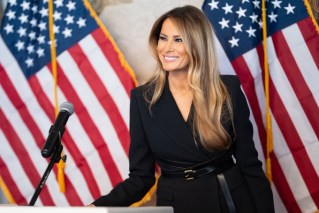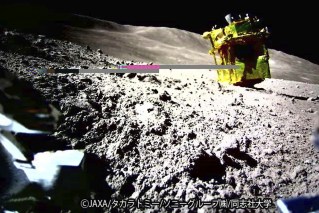‘Eradicate’ Down syndrome? This mum fears it’s coming to Australia


Rosanne Stuart and her daughter Madeline pose for one of many happy selfies together. Photo: Instagram (Rosanne Stuart)
When Rosanne Stuart, then 25, was told her newborn daughter had Down syndrome, her dad’s reaction was swift.
“He said: ‘You’re not taking her home. You’ve just finished your studies – you have to give her up’,” Ms Stuart says.
She ignored his advice and he went on to apologise, becoming the “world’s biggest champion” of his granddaughter, Madeline, now 22 and the world’s first supermodel with Down syndrome.
But it could’ve turned out very differently for the Brisbane mum.
“I’m glad nobody offered me a test for Down syndrome when I was pregnant” Ms Stuart, now 47, says.
“I might’ve taken it, absorbed the messages I grew up with, felt pressured into having an abortion, then Madeline would’ve been killed.
“I’d have had 22 years without the greatest joy of my life.”
The test Ms Stuart is discussing is the non-invasive pre-natal test, which makes identifying Down syndrome accurate and un-harmful to the foetus.
“I’m pro-choice – but not to abort someone for what you think isn’t perfect,” Ms Stuart says.
“I worry about the future we’re heading towards if we eradicate everything that people think isn’t perfection.”
After pre-natal testing for Down syndrome was introduced in Iceland, almost 100 per cent of women who received a positive result chose to terminate their pregnancies. The country is close to eradicating Down syndrome altogether with just one or two children born with Down syndrome per year.
Australia could be next to follow this road.
The New Daily can today reveal that the Australian Medical Association (AMA) supports reducing the cost of the non-invasive pre-natal test to make it commonplace in Australia.
Steve Robson, the AMA’s Obstetrics and Gynaecology spokesperson told The New Daily: “Non-invasive prenatal testing for Down syndrome is widely available in Australia, but there’s a cost issue. There’s no Medicare rebate for it, so the test may be unaffordable by some women who’d wish for it.”
“The AMA supports equity of access for all evidence-based tests. If a body of opinion from responsible groups supports its use, as is the case with this test at the moment, the AMA is in support.”
But Ms Stuart opposes the broadening the test’s availability. “There are no instances I have sympathy for women who abort their children with Down syndrome. It’s selfish,” she says.

A light hearted moment between Rosanne and Madeline. Photo: Rosanne Stuart. Photo: Instagram
If the test does become more widely available, Ms Stuart argues that certain caveats should be in place.
“We need better pre-natal counselling, so women know the NDIS support available to them” she says.
“They should spend time with parents of Down syndrome children like me, so they don’t just get the cold medical facts; they get the emotion and experience the pure joy I get from my daughter.”
Down Syndrome Australia CEO Dr Ellen Skladzien tells The New Daily that her organisation “respects the right of women to undertake prenatal testing and to make decisions about whether to continue a pregnancy based on their own circumstances and beliefs.”
They are, however, concerned some families may not be making fully informed choices: “All women contemplating a test during pregnancy need access to accurate and balanced information about Down syndrome and should have opportunities to connect with other families,” she says, calling for improved training for doctors and midwives and better access to post-screening counselling.
Ms Stuart says she feels “very blessed” to have a daughter with Down syndrome.
“In some ways it’s harder, but in others, it’s easier. I’m friends with parents of children the same age who are doing drugs, drink driving. I have a daughter who just wants to be around her mum and bring love, comfort and affection to everyone she meets.”
Mr Robson says, “In Australia, the majority of couples who find that their pregnancy has Down syndrome choose not to go ahead with the pregnancy. The AMA supports informed choice in healthcare. If women and parents receive appropriate counselling from their doctors, then the choices they make should be respected.”
Madeline is primarily defined by her abilities, rather than her disabilities. Ms Stuart notes that, having walked in six New York Fashion Weeks, been in Vogue and the only person with a disability granted a US working visa, she “has a better resume than people her age without a disability”.
In September last year, Diesel invited Madeline to star alongside celebrities in their Haute Couture campaign – models were invited to wear what they’d been bullied about, rather than hide it, to make them stronger.
Madeline posed with the word ABORT emblazoned across her Diesel jumper dress. It was a striking image.
Ms Stuart warns of the possible consequences of Australia following Iceland’s example.
Two key things will be potentially be eradicated – the “loving and kindness” quality which she says is a common trait of many, if not all, people with Down syndromet, but also a quality in people without the syndrome.
“Our humanity. Our world will be very black and white if we get rid of people with disabilities – they slow us down a little bit and make us realise what’s important: to nurture.”








